Qatalum recently participated in the GAC Environment Conference 2015 in Doha, Qatar by delivering the event’s welcome speech and presenting a number of case studies relative to sustainability. As the aluminium industry grows in importance amidst a slump experienced by the Middle East’s energy sector, the Conference offered an opportunity for Qatalum to focus on the event’s central theme: the environment.
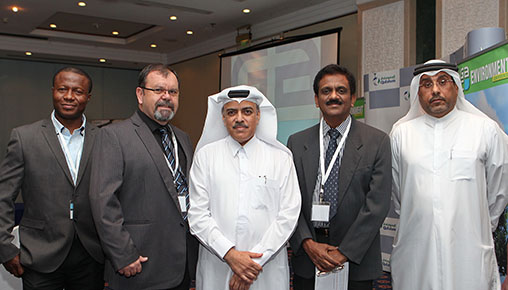
The GAC Environment Conference was launched to provide an opportunity for sharing and discussing environmental developments as they relate to emission control in smelters and power stations. Through a series of sessions, the Conference provided attendees the opportunity to network whilst gathering a range of essential information.
Khalid Laram, Qatalum’s CEO, delivered an address to the GAC Environment Conference’s attendees inaugurating the event. During his speech he touched on the importance of aluminium and how previously held myths are being discarded in favour of more widespread use of the versatile metal.
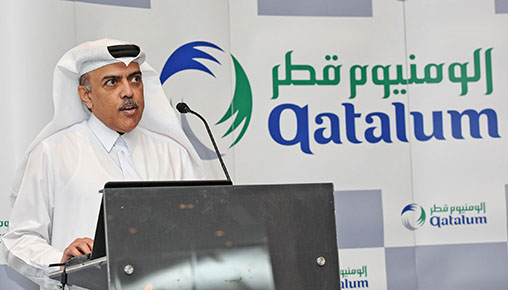
“A commonly held falsehood which exists in many communities is that the aluminium industry is an unhealthy one. This notion could not be further from the truth. Aluminium is now being, more than ever, turned to as an alternative to steel and copper. The material is lighter, more cost-effective, infinitely recyclable and as a result better for the environment. The automobile industry is increasing its use of light-weight aluminium in record numbers to improve fuel consumption and emissions, proving just how progressive our industry is,” said Laram.
“The environmental ethos of Qatalum adds further to the value of aluminium based on our commitment to limiting waste. A key environmental waste management objective for Qatalum has always been to avoid contributing to the country’s landfills. An essential aspect of these efforts has been based on collaborating with like-minded industries across the Gulf, in order to best explore how to fully utilise waste as both alternative fuel and raw material.”
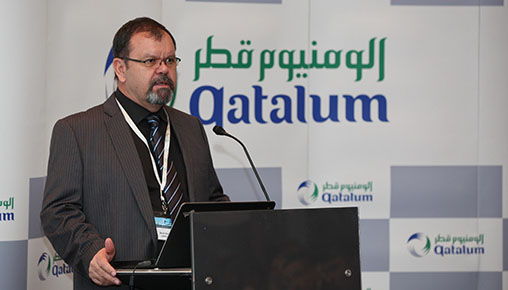
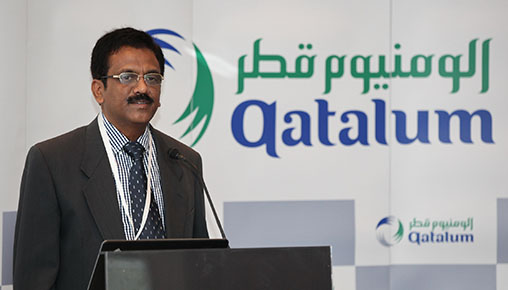
Qatalum’s objective at the Conference was to further the importance of the aluminium industry embracing sustainability and also to highlight the advantages present in more companies working more closely together. The sessions within the Conference laid out the methods by which this would be possible.
Sherwin Salinio, Qatalum’s Environment Monitoring Supervisor and Joy Abraham, Environment Superintendent, jointly presented Qatalum’s case study within the emissions and clean technology Sessions on “Leak Detection and Repair (LDAR) program”. The presentation centred on preventing leaks of gaseous and volatile products from pipelines and pipeline fittings.
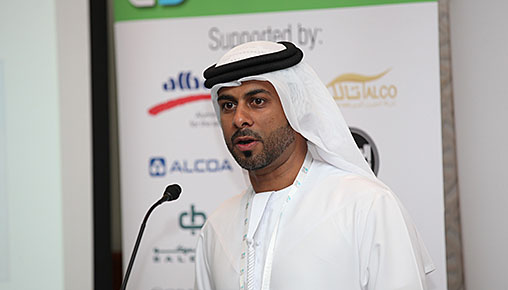
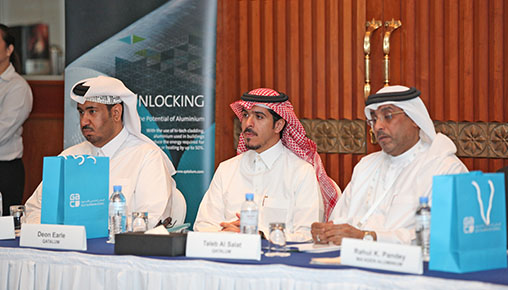
In addition to this session, Abraham presented yet another Qatalum case study; “Baseline Vegetation Monitoring for Aluminium Smelters”, which touched on the importance of the practice as it directly relates to the industry. Abraham also chaired a presentation given by Dr. Esam Elsarrag, Director, Research and Development – Gulf Organization for Research and Development, which covered the potential for powering Gulf aluminium with solar energy.
Under Session 5 – Fume Treatment, with regards to power plant emissions, Ian Fuller, Operations Manager at Qatalum’s captive Power Plant presented on Selective Catalytic Reduction Technology (SCR), why SCRs are needed, how they are properly operated, their life cycles, and proper SCR maintenance and emissions control.
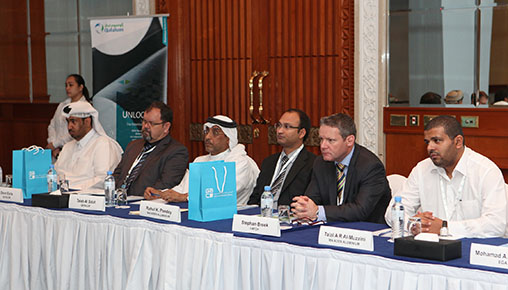
Said Laram concluded in his address, “Qatalum cultivates world class research and development hubs via the scientific and educational resources which we possess. We’ve sponsored international research and coursework specific to innovation at Qatar University and will continue to do so in a bid to further our environmental aims. Independent of the region’s hydrocarbon dominated industries, the aluminium industry should stand as a leader in environmental practices. It should strive to constantly improve on all environmental fronts.”
Deon Earle, HSSE Manager said in his concluding speech, “Environmentally minded measures enacted within our industry should maintain constant compliance with their ‘Consent to Operate’ legal requirements. It is our duty to keep within regulatory standards and where possible even surpass them by raising the bar higher.”

